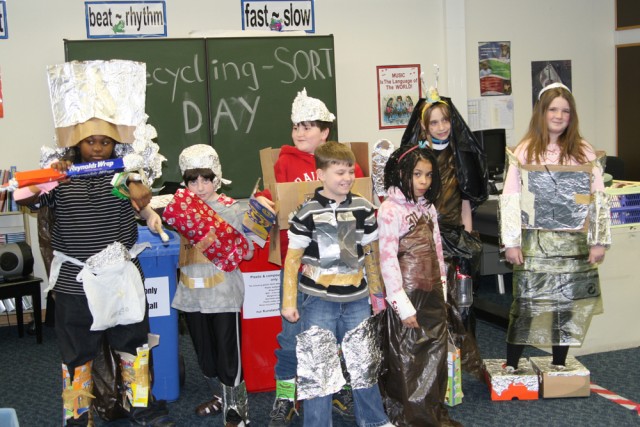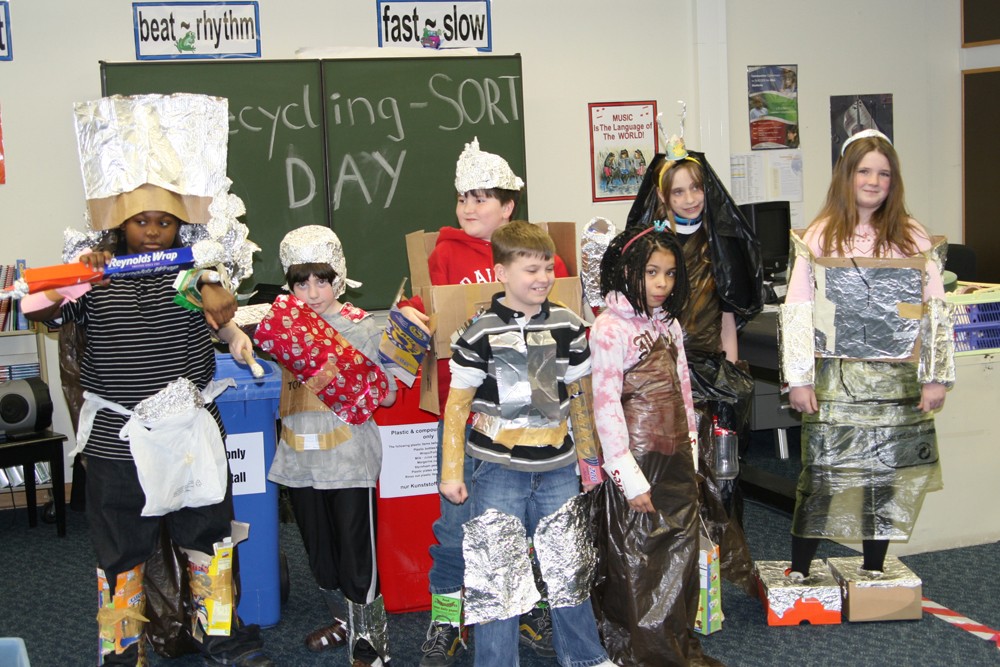ANSBACH, Germany -- Separate or Recycle Trash is a program that can save U.S. Army Garrison Ansbach money, while bringing those savings back into the community in the form of improved facilities and programs.
SORT is an educational program that works to make recycling easy for people. While it is normally directed towards children, a new booklet seeks to reach the community as a whole.
With a federal U.S. budget deficit of nearly $1.2 trillion, savings of some $38,000 may seem rather trivial to many of us.
However, when that additional money "could be used to pay for special community projects we normally couldn't afford because of budget constraints--we need to make every effort to reign in those savings," said Col. Christopher M. Hickey, commander of USAG Ansbach.
"It benefits our entire community when we recycle our trash deliberately and more effectively.
"Besides that, it is the law. It is our responsibility to recycle all that we can," he added.
To entice garrison residents, as well as those who live off post, to do just that, Jutta Seefried, recycling coordinator for the Ansbach Environmental Management Division, points out a renewed effort and a new campaign her department initiated.
An information brochure for the SORT campaign is expected to be available and distributed in late May throughout the community.
S.O.R.T. "Separate or Recycle Trash" is the headline of the colorful booklet. It explains in great detail why there is a need to recycle; what types of so-called wastes can and need to be recycled; in which container bins they should be disposed of; and where those bins are located, as well as showing alternative locations of those containers.
"The more we recycle, the less we have to spend our garrison money on companies who collect residual (regular non-recyclables) trash," she said.
For instance, no extra charges accrue in housing areas for recycling paper, flattened cardboard, used clothes and shoes, glass bottles, cans and items made of aluminum and plastic packaging.
And it's "not only money" but also vital and diminishing resources like water, gas and electricity that are being saved, which accumulate with additional pick-up collections, according to Seefried.
"At the end, we also limit air pollution."
She points out that paper "can be recycled and used up to seven times."
However, television reports often show paper being washed during the process of recycling, often feeding the false perception that it's okay to throw soiled paper into the recycle bin.
Seefried emphasizes that paper must be clean since the recycling process is not able to filter out grease, food residues or other soiling yet.
Is there hope for the future' "Possibly" she said.
Unfortunately, residents at some housing areas here seem to make less of an effort to recycle paper and other waste products than one would hope for, Seefried said. "At least, that's what overflowing trash containers for unrecyclable waste opposed to the relatively empty recycling bins seem to indicate," she said.
"The reason for that may be because people often dispose recyclables in containers located at the work environment or near the shopping center," she conceded. "It's simply more convenient for many."
That, though, in turn costs additional funds since recycle bins are picked-up "half empty" and money has to be spent for their pick-up, while those completely filled and located near the post exchange often have to be picked-up twice, "once more in addition to their regular collection day."
Another issue is what a survey conducted in October 2008 revealed about the recycling collection point at Katterbach Kaserne. Almost half of the people living off-post disposed of their trash on base, according to Seefried.
She said that everyone living off post is required by German Waste Law to properly dispose of their accumulated waste "where it originates."
That means "it is actually prohibited to dispose of waste anywhere else," she said. Also, she pointed out, landlords normally provide trash containers and include the costs in the monthly rent, resulting in Soldiers and U.S. civilians being reimbursed by the government.
"Therefore, when tenants take their trash on base and illegally dispose of it, the U.S. taxpayer is paying twice because of the additional pick-up on base," she said.
And besides avoiding paying tax dollars twice, doing things the right way can really pay off.
"What many people don't realize, we waste a lot of money that way which could be spent to improve the community," Hickey said.


Social Sharing